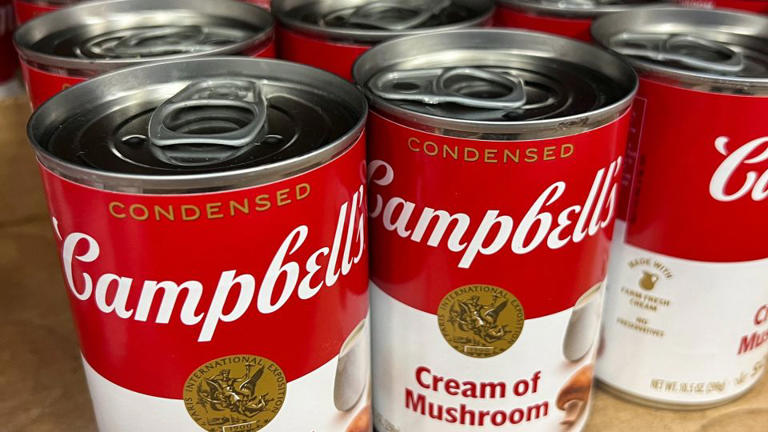Campbell Soup Company Rebrands as The Campbell’s Company Amid Snack Boom
2 min read

In a strategic shift reflecting changing consumer preferences, the 155-year-old Campbell Soup Company is dropping “soup” from its name and rebranding as The Campbell’s Company. This move highlights the company’s evolving focus from traditional soups to a broader range of snack products and other food lines.
Campbell, historically known for its iconic soups, has expanded significantly beyond this category. The company now boasts a diverse portfolio that includes well-known snack brands such as Goldfish, Snyder’s of Hanover, Cape Cod, and Pepperidge Farm. Additionally, Campbell recently acquired Sovos Brands, the producer of popular Italian food products like Rao’s sauces.
Campbell CEO Mark Clouse emphasized that the name change is a strategic decision to better represent the company’s expanded product offerings while retaining the established brand recognition and reputation. “This subtle yet important change retains the company’s iconic name recognition, reputation, and equity built over 155 years while better reflecting the full breadth of the company’s portfolio,” Clouse stated. The rebranding is subject to shareholder approval, which will be determined at the company’s annual meeting in November.
Although soup remains a key component of Campbell’s business, its role has diminished relative to other products. Last year, the company’s snack division saw a 13% increase in sales, while its soup sales grew by a more modest 3%. This shift underscores a broader trend in consumer behavior, where snacks are increasingly favored over traditional ready-to-serve soups.
The snack market, valued at over $200 billion by market research firm Circana, has become a focal point for legacy food companies like Campbell. According to Circana, nearly half of Americans consume at least three snacks a day, reflecting a significant shift in eating habits.
In August, Mars, the maker of M&M’s, further illustrated this trend by agreeing to acquire Kellanova, the owner of Cheez-Its and Pringles, in a deal worth nearly $29 billion. This acquisition underscores the growing importance and profitability of the snacking sector. Kellanova highlighted that “snacking is a large, attractive, and durable category that continues to grow in importance with consumers.”
Campbell’s decision to rebrand is part of a larger industry trend where established food companies are pivoting to capture a larger share of the snack market. As consumer preferences evolve, these companies are adapting their strategies to focus more on high-growth areas such as snacks and convenience foods.
The new name, The Campbell’s Company, reflects not only the company’s historical legacy but also its future direction as it continues to diversify its product lineup. This rebranding effort aims to align the company’s identity with its expanded market presence while maintaining the strong brand equity associated with Campbell’s long-standing reputation in the food industry.